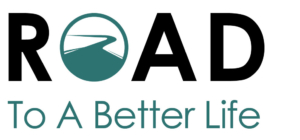SOS Recovery Rally 2019

In celebration of National Recovery Month, SOS Recovery Community Organization will be hosting its second annual Recovery Rally Saturday, September 14th, 2019 from 10:30 a.m. to 3:30 p.m. at Henry Law Park.
Now in its 30th year, National Recovery Month is sponsored by the Substance Abuse and Mental Health Services Administration to educate Americans that substance use treatment and mental health services can enable those with mental and substance use disorders to live a healthy and rewarding life.
“Every September, tens of thousands of prevention treatment and recovery support programs around the country celebrate Recovery Month and share their stories of hope and recovery with their neighbors, friends and colleagues,” says John Burns, Director of SOS. “We invite everyone to join us at our Recovery Rally to celebrate the community around us and the 23 million people in the United States that are in recovery. The message of our Rally is hope and our purpose is to create awareness about the fact that recovery is not only possible, but is happening in our community.”
According to Burns, the family friendly event will feature inspirational speakers, music and a variety of other activities.
“We’re excited to have an amazing lineup including performances from Red Sky Mary and Scott Plante. Our Speaker line-up includes Dover City Council member and principal of Northshore Recovery High School Michele Lipinski. Jasmine Lamontagne, host and one of the founders of the show Exit Team and Pam Chaffee of Dover, the mother of a child affected by substance misuse who was lost due to his long battle with mental illness and lost his fight to suicide. We will also have NH State Senators David Watters, James Gray and Tom Sherman.”
The event will also feature 30 plus exhibitors and family friendly activites so that people can learn about prevention, treatment and recovery supports in the area.
The SOS RCO Recovery Rally is being sponsored by Silver Sponsor Kennebunk Savings Bank; Audio and Sound System Sponsor, New England Mobile Audio; Bronze Sponsors NH Healthy Family and Well Sense Health Plan; and Friends Harvard Pilgrim Health Care, Newburyport Banks, D.F. Richard, and Mr. Electric.. Sponsor opportunities are still available. For more information about sponsorship, contact John Burns at jburns@goodwinch.org or 603-516-2776. All proceeds from the event will benefit SOS RCO.

